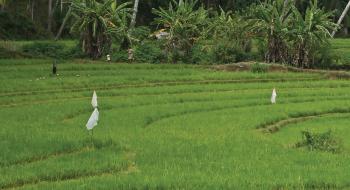The objective of the India Ecosystem Services Project (ESIP), which is under preparation, is to improve forest quality, land management, and nontimber forest produce (NTFP) benefits for forest dependent communities in selected landscapes in Madhya Pradesh and Chhattisgarh. It is designed to enhance the outcomes of the national Green India Mission, which targets improving the quality of forests in about 5 million hectares.
ESIP will invest in strengthening the capacity of government institutions in forestry and land management programs, along with improving the quality and productivity of the existing forests in order to enhance carbon sequestration, and to ensure sustainable harvesting and value addition of NTFP. The project will help in scaling up sustainable land and ecosystem management (SLEM) best practices in about 25,000 hectares to benefit small and marginal farmers, and to build national capacity for monitoring land degradation.

The project will follow the landscape approach, and its investments will directly contribute to India’s nationally determined commitments. ESIP aims to prevent land degradation and desertification and increasing above-ground forest carbon stock through a combination of investments. The purposes are to implement and scale up tried- and-tested SLEM best practices in both private land holdings and common property resource lands, to increase national capacity for monitoring land degradation and tracking associated indicators, and to generate knowledge exchange on SLEM approaches. These activities are designed to overcome the twin challenges of arresting land degradation and meeting food security targets. These investments will contribute to the results of UNCCD action programs at the country level.
ESIP will promote gender-inclusive approaches across the project structures, institutions, plans, and interventions. The direct beneficiaries of ESIP will be forest dwellers, small and marginal landholders, landless individuals, small livestock holders, and NTFP collectors, as well as community organizations such as joint forest management committees, self- help groups, and other resource groups in the forest landscapes and microwatersheds.
The total financing is US$24 million.

